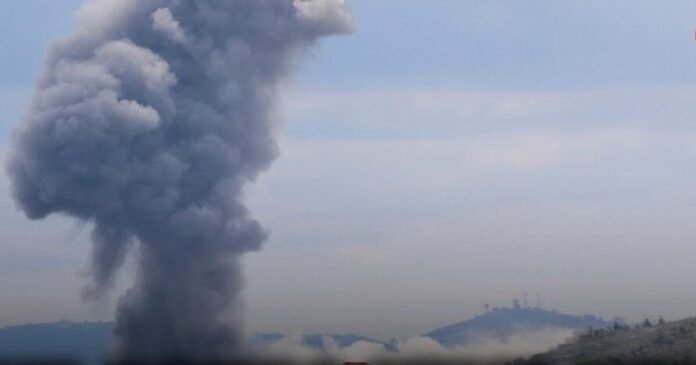Israel hits Syria with over 20 airstrikes after deadly clashes involving Druze factions near Damascus and Sweida.
Israel unleashed its most intense air campaign of 2025 on Syria between Friday night and Saturday morning, striking over 20 military sites in response to escalating sectarian violence involving the Druze minority. The raids, which began just hours after a controversial strike near the Syrian presidential palace, mark a sharp rise in regional tensions and drew sharp condemnation from Syria and the United Nations.
The Syrian Observatory for Human Rights described the barrage as Israel’s heaviest this year, targeting key military installations in Damascus, Latakia, Hama, and Deraa. Syria’s state media confirmed the attacks, reporting four injuries in the west and additional damage in multiple provinces.
The airstrikes followed a series of deadly clashes between Druze factions and Syrian government forces, with more than 100 people killed earlier in the week in the Damascus suburbs of Jaramana and Sahnaya, as well as in Sweida, the Druze heartland in southern Syria.
Tensions peaked when an apparent drone strike—believed by Syrian sources to be Israeli—killed four Druze fighters at a farm in Sweida. That attack, along with an earlier blast near the presidential palace in Damascus, prompted the Syrian government to accuse Israel of destabilising the state and violating its sovereignty.
Israeli officials confirmed the palace-area strike, saying it was a warning to Syria’s new rulers, who came to power after the ousting of President Bashar al-Assad last December. Prime Minister Benjamin Netanyahu and Defence Minister Israel Katz issued a joint statement declaring, “We will not allow forces to be sent south of Damascus or any threat to the Druze community.”
The Druze, a religious and ethnic minority spread across Syria, Lebanon, and Israel, have long walked a tightrope in Syria’s complex civil war landscape. After the recent bloodshed, Druze religious and military leaders reaffirmed their loyalty to Damascus and demanded more representation in the local administration of Sweida. This was widely seen as an attempt to stabilise their position under the new Islamist-led authorities.
The Syrian government moved quickly to broker a truce. Troops were deployed to restive areas, including Sahnaya and Jaramana, where soldiers replaced Druze gunmen at security checkpoints. An agreement reportedly included the surrender of heavy weapons by local militias, though no such handover was seen by journalists on the ground.
International reaction was swift. UN Secretary-General António Guterres condemned the Israeli attacks, while a German foreign ministry statement warned Syria must not become a “venue for regional tensions.” Qatar and Saudi Arabia also denounced Israel’s actions as unjustified aggression.
Israel has grown increasingly alarmed over developments in Syria since Assad’s fall, particularly the rising influence of Islamist factions with roots in al-Qaeda. Tel Aviv fears that unrest could spill into the Golan Heights and beyond, especially if sectarian strife pushes minority communities into the arms of external patrons.
A key figure in this dynamic is Sheikh Hikmat al-Hijri, a leading Druze cleric in Sweida, who on Thursday accused the authorities of launching a “genocidal campaign” against his people. His warning came just before security reinforcements arrived in the province.
The sectarian fault lines threatening to tear Syria apart were laid bare in March, when more than 1,700 Alawites were killed by government-aligned forces, according to the Observatory. That massacre remains under investigation by Syria’s new rulers.
In a sign of regional concern, Lebanese Druze leader Walid Jumblatt travelled to Damascus on Friday to meet interim president Ahmed Hussein al-Sharaa, urging his Syrian counterparts to resist “Israeli interference” and remain united.
As the dust settles from this latest confrontation, the region watches nervously, knowing full well that the bloodshed in Syria may only be entering its next chapter.
